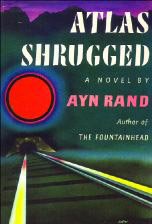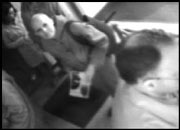A LECTURE BY ZADIE SMITH
Benaroya Hall, 200 University St., 206-621-2230, www.lectures.org. $9-$23 7:30 p.m. Tues., Nov. 12
A NOVELIST HAS her say, and then the reviewers have theirs. Two years ago, the critics who reviewed White Teeth—by a then-unknown 24-year-old English writer, Zadie Smith—couldn’t say enough. The New York Times‘ Michiko Kakutani called the book “a big, splashy, populous production reminiscent of books by Dickens and Salman Rushdie”—which itself ranks up there as one of the biggest, splashiest sentences Kakutani’s ever written. She characterized the book as a “riotous multicultural drama” announcing “the debut of a preternaturally gifted writer.” These were, for the most part, universal sentiments.
That was then. The general consensus on The Autograph Man, Smith’s second novel, is that it’s terrible. The critical stampede resembles the frenzy of the wrestling scene in the book’s prologue: “All of a sudden,” Smith writes, “[the wrestlers] run at each other . . . and if you have a better phrase than like thundering elephants, insert it here [ ].”
The reviewers’ punches go something like this:
“The Autograph Man [is] a very much smaller [novel]—less accomplished and less felt on every level—than its predecessor.” —Thomas Mallon, The Atlantic Monthly
“Gone almost completely are the imagination and the humanity of White Teeth; they have been replaced by gimmickry. The gimmicks, unfortunately, are not confined to the level of topography; they are manifest in nearly every aspect of Smith’s new novel, from the cartoonish figures to the caper-filled plot.” —Ruth Franklin, The New Republic
It’s “a flat-footed, grudging performance. Dour where White Teeth was exuberant; abstract and pompous where White Teeth was brightly satiric; tight and preachy where White Teeth was expansive.” —Michiko Kakutani, The New York Times
These critics are, on the one hand, wrong, but more than that, they are wrongheaded: They are wrong in their entire approach. The test of The Autograph Man should be whether it can stand on its own—not whether it’s as “sprawling,” as “multicultural,” and as “funny” as White Teeth. And yet, the same pat tactic is invariably deployed: The reviewer begins with a few glorious things to say about White Teeth (so sprawling! so multicultural! so funny!) and then undertakes to impugn the new work by rote comparison. The tone of these reviews suggests that Smith, by her very audacity to set down a second story, has called this upon herself, and that she is at fault for not achieving the exact thing she achieved last time around. Mallon predicts “a much rougher ride and a much smaller box office this time out” because The Autograph Man is just not White Teeth. Well, how could it be? Why should it be? Not every literary depiction can be of a crazy, boisterous, postcolonial family drama, in which, for example, a Muslim seamstress is found unwittingly assembling dominatrix outfits (an aspect of White Teeth that defines, for so many, why the book was so great). Is every life like that? Must every novel be?
Constantly comparing the current book to the author’s previous work is what critics do when they have nothing meaningful to say. (“Well, it’s not The Sun Also Rises,” you could imagine these critics saying about The Old Man and the Sea, duly noting that it’s considerably less “sprawling”). The other thing they do, bereft of an original idea, is summarize plot—and, lo and behold, The New York Times reviewers (Kakutani in the regular edition, Daniel Zalewski in the Sunday Book Review) do plenty of that, too. In all the dismissive post- White Teeth blather, there is no single attempt to engage or elucidate the new novel’s themes and primary concerns, which deserve (and would support) a measure of thoughtful consideration. The Autograph Man‘s central issues are, namely, the elusiveness and allure of celebrity and religion; the relationship (and similarities) between celebrity and religion; and the pervasiveness of the movie industry, which has had a strong hand in the corrosion of human authenticity. In very tangible ways, the characters in The Autograph Man grapple with these issues (the main character’s job, after all, is to collect and sell celebrity autographs); funny, then, that the reviewers do not.
For kicks, and for no other reason, you might read Ruth Franklin’s (retarded, it’s just retarded) review in The New Republic, which opens with this irrelevant bon mot: “Is Zadie Smith a pseudonym for Dave Eggers?” She cites, as evidence that this comparison is “not as absurd as it sounds,” what she calls “the tricks of the McSweeney’s age: quirky lists, cute drawings, typographical high-jinks.” Franklin is, in fact, being absurd. Such textual innovations, while inventive, could also be attributed to William Faulkner’s age (The Sound and the Fury), Kurt Vonnegut’s age (Slaughterhouse-Five), or Donald Barthelme’s age (pick a story). And as far as Franklin’s description of the plot as “caper-filled,” one can only assume she misappropriated a phrase from another assignment, perhaps a restaurant review: Is she describing this plot, or is she describing veal piccata? Our main character does travel from his London suburb to New York City, but the excursion is central to the novel’s significance, and there is nothing frolicsome or lighthearted or “caper-filled” about it.
Smith, herself, has achieved celebrity status—evidently, she can pack a concert hall—and has a reputation for belligerence. Which undoubtedly will make her lecture this week, to put it plainly, interesting: At press time, Seattle Arts & Lectures organizers still had no knowledge of any particular speaking topic, though the evening will include an onstage interview. Will she address her critics? Feisty as she is, issuing a new novel into the world, a world that already contains The Sound and the Fury and Slaughterhouse-Five, is a vulnerable act, and it’s an infinitely more vulnerable situation to be misunderstood. “When I wrote The Autograph Man,” she recently told a reporter for Newsweek, “I wrote the book that was as far from White Teeth as I could imagine.” Too bad the critics didn’t pull their heads out of that other book and seriously look into this one, because The Autograph Man stands on its own as a sensitive, sturdy, stunning achievement. If you have a better set of adjectives than exuberant, exhilarating, and exceptional, insert them here [ ].








